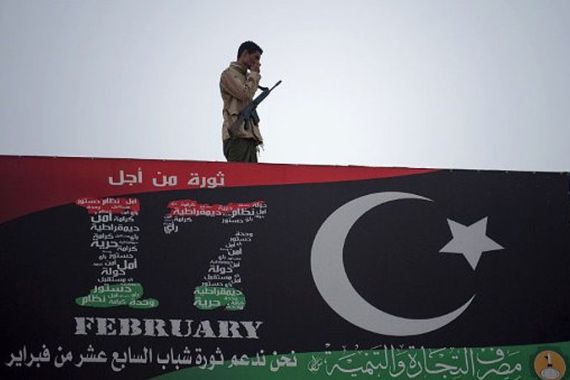Rebel fighters make gains in western Libya
Opposition fighters make major advance towards capital, after claiming series of victories against Gaddafi forces.

| Rebels have been successful in pushing out Gaddafi troops from western Libya in recent weeks [Al Jazeera] |
Libyan opposition fighters have made a major advance towards the capital, Tripoli after claiming victory in western Libyan towns against forces loyal to leader Muammar Gaddafi.
An opposition military leader said on Friday that local fighters won control of four towns in the western Nafusa mountain range, where government forces have besieged and randomly shelled rebel-held areas for months.
Fighters who had fled then used their knowledge of the area to chip away at the government forces, Colonel Jumaa Ibrahim of the region’s rebel military council told the Associated Press news agency via Skype.
“They know all the hills and valleys, so they were able to trick the brigades and destroy some of their vehicles,” he said.
Opposition fighters also pushed government troops from Shakshuk and Qasr al-Haj, two towns near a key road that runs along the mountain range’s northern edge, Ibrahim said.
Ibrahim said opposition forces took the towns on Thursday then moved north to clash with Gaddafi forces in the village of Bir Ayyad on Friday. There were no immediate reports of casualties.
After a brutal siege by pro-Gaddafi forces, Misurata, Libya’s third largest city, is now in opposition hands. Opposition fighters there have now pushed halfway to the town of Zlitan after taking control of Zintan.
At one stage, their advance came to within 60km of Sirte but the government troops held their line and repelled the attack.
NATO helicopter attacks
NATO announced on Saturday it had for the first time used attack helicopters in Libya, striking military vehicles, military equipment and Gaddafi forces.
“Attack helicopters under NATO command were used for the first time on 4 June 2011 in military operations over Libya as part of Operation Unified Protector,” the Atlantic Alliance said in a statement.
“The targets struck included military vehicles, military equipment and fielded forces,” said the statement, without detailing exactly where the strikes had taken place.
“The use of attack helicopters provides the NATO operation with additional flexibility to track and engage pro-Gaddafi forces who deliberately target civilians and attempt to hide in populated areas,” the statement went on.
NATO forces “are constantly reviewing their operations and use of available assets, including attack helicopters, to best maintain the momentum and increase the pressure on pro-Gaddafi forces.”
China meets rebels
Meanwhile, the Chinese foreign ministry said that China’s ambassador to Qatar recently met with the head of Libya’s opposition council, the first known meeting between the two sides.
A Chinese foreign ministry statement said Beijing’s ambassador to Qatar, Zhang Zhiliang, had met and “exchanged views on developments in Libya” with Mustafa Abdel Jalil, the chairman of the rebel council that is trying to offer itself as a credible temporary alterative to Gaddafi.
The ministry gave no details of the talks but the meeting itself was an indication that Beijing wants to keep open lines of communication with the rebel forces.
China abstained in the UN Security Council vote authorising NATO military action in Libya.
The conflict in Libya is nearly four months along, but the situation on the ground appears mostly stalemated.
NATO air strikes have kept the outgunned rebels from being overrun, but the rebels have been unable to mount an effective offensive against Gaddafi’s better equipped armed forces.
Gaddafi’s government has been slowly crumbling from within. A significant number of army officers and several Cabinet ministers have defected, and most have expressed support for the opposition.
Rebels have turned down initiatives calling for ceasefires, insisting that Gaddafi and his sons must relinquish power and leave the country.